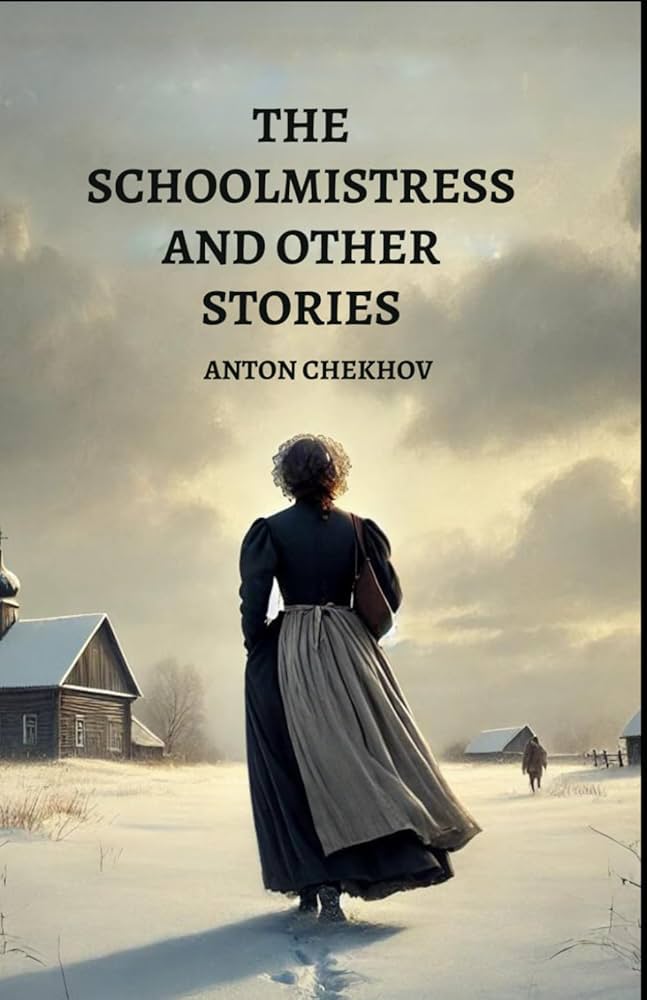MISERY
byMisery settles over Iona Potapov like the snowflakes drifting down on his motionless sledge. He sits hunched and silent, draped in white, waiting on the side of a road already passed by hundreds who never once look his way. The city’s energy contrasts sharply with Iona’s stillness, highlighting the emotional distance he feels from those around him. Though life goes on, it feels irrelevant to him now. Time stretches painfully slow. His son has died recently, and every breath he takes seems heavier in this unsharable grief. When a fare finally arrives—a hurried officer—it is not companionship that steps into the sledge, but command and impatience. Iona tries to speak of his loss, but his words are cut short, dismissed without thought, as if his pain didn’t matter in the larger machinery of the city.
Hoping for relief, Iona picks up three young men next, who chatter and insult one another with crude energy. Their presence briefly distracts him, but the gap between their youthful arrogance and his quiet sorrow is too wide. Again, he tries to share a piece of his tragedy, dropping a small mention of his son’s passing into their conversation. Yet the reaction is shallow, polite at best, and their attention swiftly moves elsewhere. Iona is left still clutching the full weight of his pain, more invisible than before. When they leave, the silence grows louder. The city feels cruel not for its noise, but for its indifference. Iona’s repeated efforts to connect become a quiet echo lost in the chaos. He walks up to a porter after, hoping for just one listener. Even then, the reply is fleeting and hollow.
Returning to the lodging yard early, Iona finds no comfort in the company of others. His fellow cabmen lie wrapped in sleep, disconnected from his silent suffering. No one asks about his day, nor would they notice if he were to weep quietly. His misery is not dramatic; it is quiet, buried under routine and cold weather. As he lies on the wooden bench, surrounded by snoring bodies, he speaks softly—but no one hears him. His grief fills the air, yet there is no human reply. Realizing the futility of it all, he finally rises and walks toward the stable. In that moment, the only one left who will listen is his horse.
Kneeling beside his mare, Iona strokes her ears, speaking in hushed tones. His voice trembles as he tells her about his son, how he died so suddenly and so young. There’s no expectation of understanding, but the act of speaking brings a strange comfort. With each word, he allows his sorrow to leave his body, at least for a while. The horse, calm and quiet, doesn’t interrupt, doesn’t move away. This silent presence becomes the only witness to Iona’s heartbreak. In a world full of people, it is this animal who gives him space to mourn. Through that tender act, Chekhov captures something profoundly human: that grief, when unshared, becomes unbearable, and that sometimes even a silent listener is enough.
The story paints an achingly real picture of emotional isolation. Iona’s misery is not extraordinary—it is common, relatable, and deeply tragic because of how often it goes unseen. In a society rushing forward, moments of human connection are rare, and sorrow must sometimes find its way to places least expected. Chekhov’s brilliance lies in his subtlety. There are no grand tragedies, just the quiet pain of a man ignored in his moment of deepest need. By the story’s end, the reader doesn’t merely observe Iona’s sadness; they carry it with them. And that is the mark of a narrative that speaks not just to the mind, but to the soul.

